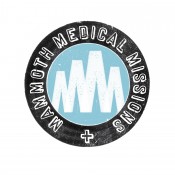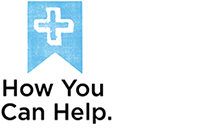Code of Conduct
This Code of Conduct was developed and agreed upon by The International Red Cross, the Red Crescent Movement, and eight of the world’s largest disaster response agencies in the summer of 1994. Like most professional codes, it is a voluntary one. It lays down ten points of principle which all humanitarian actors should adhere to in their disaster response work, and goes on to describe the relationships that agencies working in disasters should seek with donor governments, host governments and the UN system.
The code is self-policing. There is as yet no international association for disaster-response NGOs which possesses any authority to sanction its members. The Code of Conduct continues to be used by the International Federation to monitor its own standards of relief delivery and to encourage other agencies to set similar standards.
It is hoped that humanitarian actors around the world will commit themselves publicly to the code by becoming a signatory and by abiding by its principles. Governments and donor organizations may want to use the code as a yardstick against which to measure the conduct of those agencies with which they work. Disaster-affected communities have a right to expect that those who assist them measure up to these standards.
- The humanitarian imperative comes first.
- Aid is given regardless of the race, creed or nationality of the recipients and without adverse distinction of any kind. Aid priorities are calculated on the basis of need alone.
- Aid will not be used to further a particular political or religious standpoint.
- We shall endeavour not to act as instruments of government foreign policy.
- We shall respect culture and custom.
- We shall attempt to build disaster response on local capacities.
- Ways shall be found to involve program beneficiaries in the management of relief aid.
- Relief aid must strive to reduce future vulnerabilities to disaster as well as meeting basic needs.
- We hold ourselves accountable to both those we seek to assist and those from whom we accept resources.
- In our information, publicity and advertising activities, we shall recognize disaster victims as dignified human beings, not hopeless objects.
Patient Confidentiality and Respect
Mammoth Medical Missions volunteers agree to maintain patient privacy and confidentiality at all times, regardless of the mechanism that is being used to transmit the message, be it social networking or a simple conversation, as well as to maintain appropriate boundaries and always treat patients with dignity and respect.
Photography and Media Proprietary Rights
Except by special prior arrangement with the MMM executive board, all photographs, video, and other media captured in the course of your work for Mammoth Medical Missions shall be the exclusive property of Mammoth Medical Missions, Inc., publishable only with express permission from MMM’s media liaison or Communications Officer, and with appropriate credit and acknowledgment.
Social Media Best Practices
(Adapted from the IFRC)
- Be a good ambassador: always be aware that your behaviour and opinions reflect on the organization.
- Get advice: If you plan to use social media to promote MMM’s activities, please discuss with an MMM executive board member or your team’s media liaison to ensure consistency and help with best practice.
- Be passionate: Passion is contagious. Share the passion you feel for your work and talk about the successes you have been part of.
- Use a disclaimer: If you have a blog and write about mission-related issues, add a disclaimer to each page making clear that the views you express are yours alone. Be aware that this disclaimer doesn’t free you from the obligations you have under the Codes of Conduct or the Fundamental principles.
- Think of CNN, your mother and your boss: Don’t say anything online that you wouldn’t be comfortable seeing quoted on CNN, being asked about by your mother or having to justify to your boss.
- Share information: Sharing of information and experiences benefits the whole humanitarian community and ultimately the beneficiaries we serve. Feel free to share and discuss your experiences in the field. If MMM staff is perceived to be knowledgeable and helpful this will reflect positively on you and on the organization. Obviously, use common sense where information is concerned that is internal and/or confidential. If in doubt, ask the owner of the information you want to share, and always give credit where it’s due.
- Stick to the facts: Humanitarian missions are complicated endeavors and we work in complicated legal and operational contexts. People frequently misunderstand or choose to misunderstand us. If you come across a misrepresentation of the Movement, feel free to identify yourself and organizational affiliation and correct their mistake but do so with respect and with facts. If you don’t feel comfortable doing it yourself, refer the issue to your team’s media liaison, or to an executive board member. Refrain from commenting on the work of colleagues in this or other organizations that are outside your field of expertise.
- Admit mistakes: If you have made a mistake, be upfront about it. Admit and correct the mistake. If you correct an earlier post in a blog do so visibly, e.g. by using the strikethrough function and adding a paragraph that explains the update at the end. Example: “Update, 5 July 2009: My team delivered 500 tons of widgets to Alphaville – not 5,000 tons as I wrote previously.”
- Use best judgement: If you are about to publish something that makes you even the slightest bit uncomfortable, let it sit for a few more hours or a day and think again whether this is what you want to say. If it still makes you feel uncomfortable and it is related to the Movement, ask your supervisor for advice.
- Keep security in mind: Be particularly careful with what you are discussing online if you are in an operational context. Please make sure that you have read and follow your team’s security requirements. Never talk about routes or times of planned convoys or distribution of goods. If in doubt, talk to the security unit or a security delegate. Never post personal details such the home addresses of yourself or colleagues. Bear in mind that personal details of local staff members can be very security sensitive in many operational areas – this includes names and pictures. To guard against theft, do not post information on when you are travelling or away from your duty post.
- Promote others: Don’t only talk about yourself but also about the successes of your colleagues. Connect with them through social networks and spread their success stories.
Rules and Obligations
(Adapted from the IFRC)
- Observe neutrality: Don’t get involved with political initiatives. Do not publicly express any opinions on events connected with political affairs or engage in political activities that could reflect adversely on the impartiality, neutrality or independence of MMM, e.g., public support of a political party.”
- Don’t use MMM logotype: You cannot use the MMM logotype as any part of your blog or social media profile without express permission of the executive board.
- Stay focused on your job: MMM encourages the use of social media and on-line communities for certain purposes and recognizes that these can be a valuable resource, but make sure that your photography, sharing and other online activities don’t interfere with your job.
- Keep your team leaders and media liaison in the loop: Be sure to obtain permission before publishing anything related to your function or assignment. This also applies to blogs and similar online publications. If you are approached by a member of the press, refer him/her to your team’s media liaison.
- Respect privacy: Respect people’s right to privacy and don’t take photos or videos without their permission. Keep in mind that many people who have just been through a traumatic event are under shock and might say “yes” to something they might later regret. Even if you take photos or videos for personal use only, make sure that you respect the dignity of the people portrayed. If in doubt, don’t post a photo or video. It is your job to protect vulnerable people, not to exploit them. Focus on positive images. Don’t post anything about any minors that could lead to anyone identifying them or where they live.
- Be careful when quoting numbers of casualties (better yet: DON’T): MMM does not count dead or wounded. This information should come from the appropriate agencies and authorities. If you are writing about casualties, clearly reference the source, e.g. the police or the ministry of health. Numbers are very attractive for the media and if you don’t reference the numbers correctly, a personal blog post could quickly turn into a headline that reads “MMM says 10,000 dead in Alphaland”.






